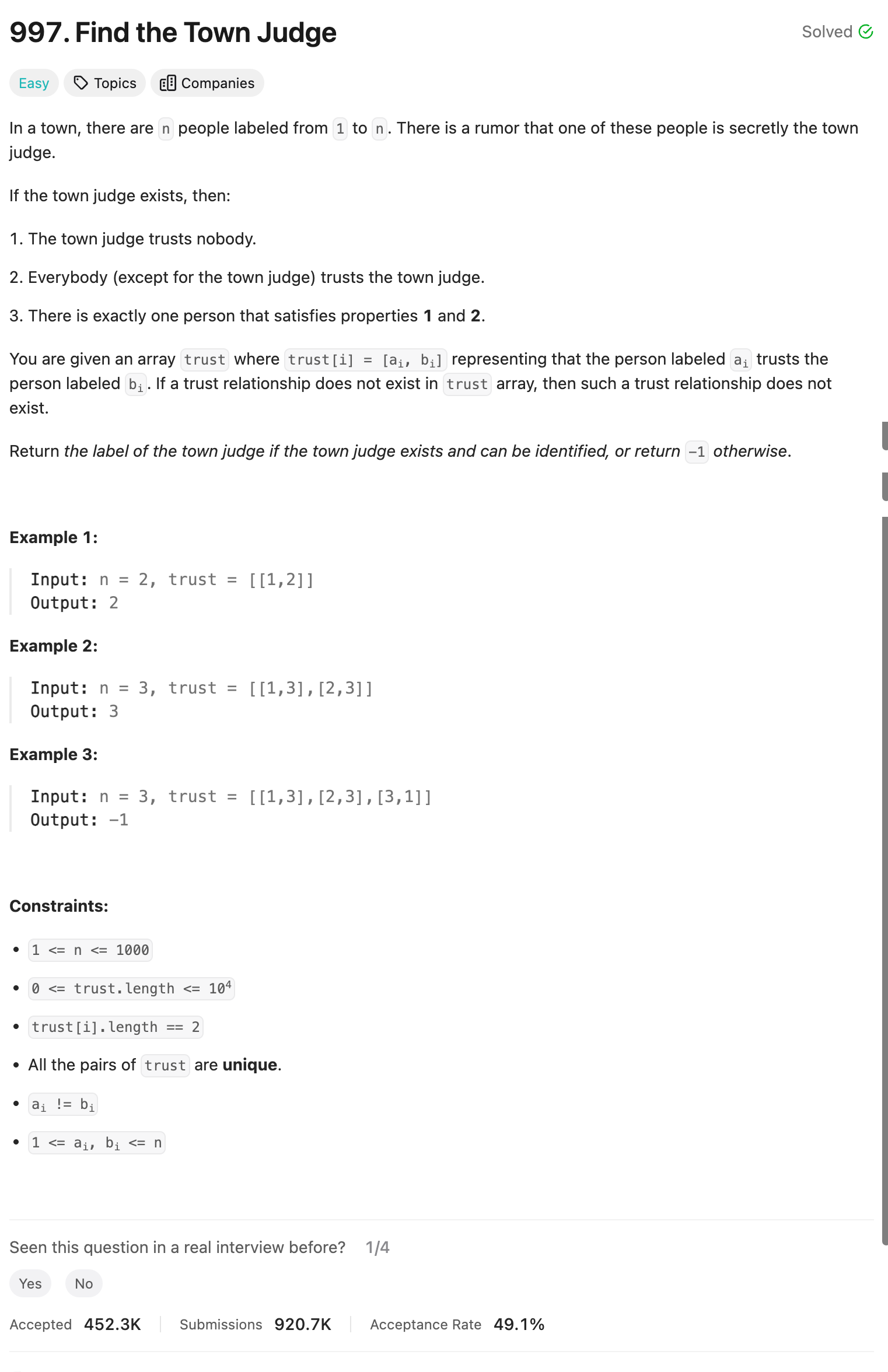Problem of The Day: Find the Town Judge
Problem Statement
Intuition
The goal of this problem is to find the town judge based on trust relationships. The judge is someone who is trusted by everyone else but trusts no one.
Approach
To approach this problem, I used a hash map to keep track of how many times a person is trusted. Additionally, I maintained a set of people who are not judges, as judges are those who are trusted by everyone else.
I iterated through the trust relationships and updated the trust count for each person. Simultaneously, I kept track of people who are not judges.
After processing the trust relationships, I checked for a person who is not in the set of not-judges and has been trusted by everyone else (trust count equal to n-1, where n is the total number of people). If such a person is found, they are considered the judge.
Complexity
-
Time complexity: O(n) where n is the total number of people. We iterate through the trust relationships and then through the set of people.
-
Space complexity: O(n) where n is the total number of people. The
hash_mapandnot_judgesset store information for each person.
Code
class Solution:
def findJudge(self, n: int, trust: List[List[int]]) -> int:
hash_map = defaultdict(int)
not_judges = set()
for person, trusted_person in trust:
hash_map[trusted_person] += 1
not_judges.add(person)
for i in range(1, n + 1):
if i not in not_judges and hash_map[i] == n - 1:
return i
return -1
Editorial Solution
Approach 1: Two Arrays
This is a simple graph problem. Here, we do not need to construct the graph. We only need to recognize that we should calculate the indegree and outdegree to solve this problem.
def findJudge(self, N: int, trust: List[List[int]]) -> int:
if len(trust) < N - 1:
return -1
indegree = [0] * (N + 1)
outdegree = [0] * (N + 1)
for a, b in trust:
outdegree[a] += 1
indegree[b] += 1
for i in range(1, N + 1):
if indegree[i] == N - 1 and outdegree[i] == 0:
return i
return -1
- Time complexity: O(E) where E is the number of edges in the directed graph.
- Space complexity: O(N) since we need to allocate two arrays
Approach 2: One Array
def findJudge(self, N: int, trust: List[List[int]]) -> int:
if len(trust) < N - 1:
return -1
trust_scores = [0] * (N + 1)
for a, b in trust:
trust_scores[a] -= 1
trust_scores[b] += 1
for i, score in enumerate(trust_scores[1:], 1):
if score == N - 1:
return i
return -1
- Time complexity: O(E)
- Space complexity: O(N)
